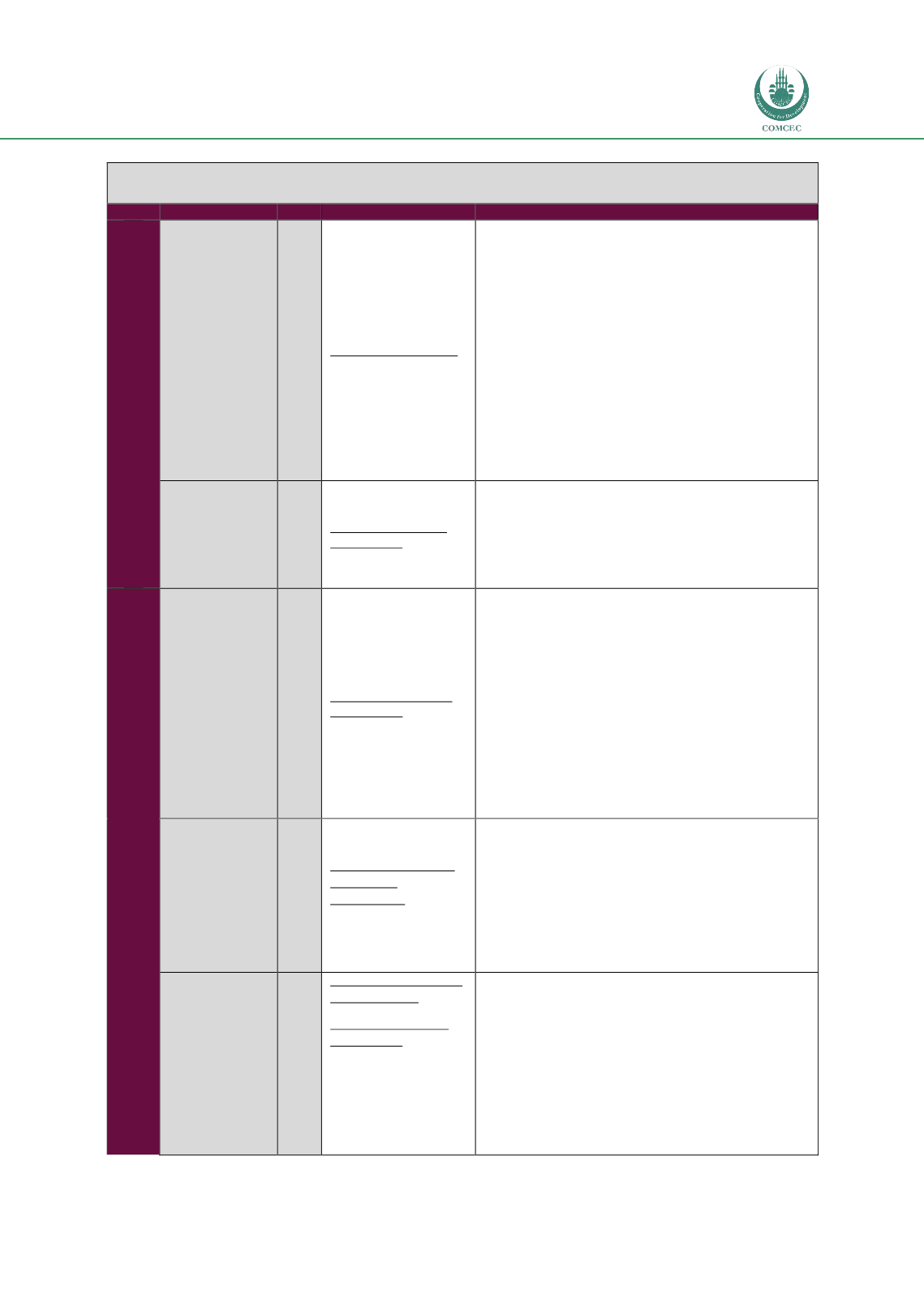

Improving Institutional Capacity:
Strengthening Farmer Organizations in the OIC Member Countries
99
3. Has the Government announced any recent policy initiatives explicitly designed to
encourage farmer organizations?
Group
Country
Y/N
Source
Comments
African Countries (cont’d)
Togo
Ministry of AgricultureIn May 2011, Togo launched a wide debate among OHADA
countries regarding the implementation of structures and
programs that benefit FOs and promote their role in
agricultural production across the OHADA zone. Also, Togo
participated in the Program for Agricultural Productivity in
West Africa (PPAAO). This program aims to accelerate the
adoption of modern technologies and production methods.
A key pillar of the program was the provision of training,
funding, and assistance for FOs in Togo. Togo benefited
from a $12M grant from the World Bank to implement this
project. Finally, the Togolese government also launched the
Assistance Project for Rural Development (PADAT). This
project will be implemented between 2011 and 2016 with
the aim of improving the food security and profitability of
small farmers. The project's prime focus is on women and
youth. 350,000 farmers are expected to benefit from this
project.
Uganda
International Labour OrganizationThe Policy Planning and Agri-business Development
programme, which established a system of accessing
information on economic activities for the cooperative
movement. It included developing a system that would
provide marketing information to be used in price
monitoring and identifying potential markets at home and
abroad.
Arab Countries
Algeria
Food and Agricultural OrganizationYes but none recently. There are four distince historical
phases in Algeria's FO policy landscape: (i) During the
French colonization, the French government encouraged
the establishment of FOs. (ii) After independence and land
reform, the governement privatized land and encouraged
individual exploitation of land. (iii) Before 1987, FOs were
under close supervision of the Board of Agriculture, which
approved their creation, appointed their directors, and
largely subsidized their investments and operating budgets.
(iv) Reforms in 1987 suppressed government ownership of
FOs and allowed free creation of FOs. Old FOs were
restructured to keep their personnel but no longer reported
to the government. New, independently-run FOs
proliferated. The number of FOs increased from 283 in
1988, to 1298 in 1994, and 1676 in 1999.
Comoros
International Fund for Agricultural Development
Yes. There are two: (i) The 2010-2011 "Ylang Ylang
Declaration" is a collaborative effort between development
agencies (IFAD; FAO; UNIDO; UNDP) and the Comoros
government to provide technical and financial assistance to
agricultural cooperatives. And (ii) The Reunion Program of
Support to economic development in Comoros, or PARDEC
(Programme d’Appui Réunionnais au Développement
Economique des Comores) is an initiative that would allow
the cooperatives in Reunion to offer assistance to those in
Comoros. The project has been underway since 2012.
Djibouti
Agence Djiboutienne de Developpement Food and Agriculture OrganizationYes. In 2013, the Djibouti Agency for Social Development
(ADDS) launched a program that aims to support FOs in the
"Ali Sabieh" region. The program supported farmers
through the provision of equipments for agricultural
production. In 2012, the Secretariat of National Solidarity
executed a similar program that benefited the regions of
"Tadjourah" and "Obock". In 2005, the Government
launched the "Projet de Developpement de l'Agriculture
Oasienne" (PDAO). The project aimed to address rural
poverty and exodus through: (i) Improving and diversifying
agricultural production, (ii) Increasing the total area

















